Presentation of New Solutions for Preservation of Biodiversity in Protected Areas
31 October 2023
Sremski Karlovci, 28 September 2023 – Today, in the Environmental Centre “Radulovački”, a presentation has been held of 13 solutions by civil society organisations for the improvement of different plant and animal species and prevention of the negative impact of climate change in protected areas all over Serbia. Thanks to the European Union (EU) and the Government of Switzerland, the CSOs were allocated financial support amounting to 190,000 USD to implement these solutions. The event has been organised by the United Nations Development Programme (UNDP) in partnership with the Ministry of Environmental Protection, within the “EU for Green Agenda in Serbia” project.
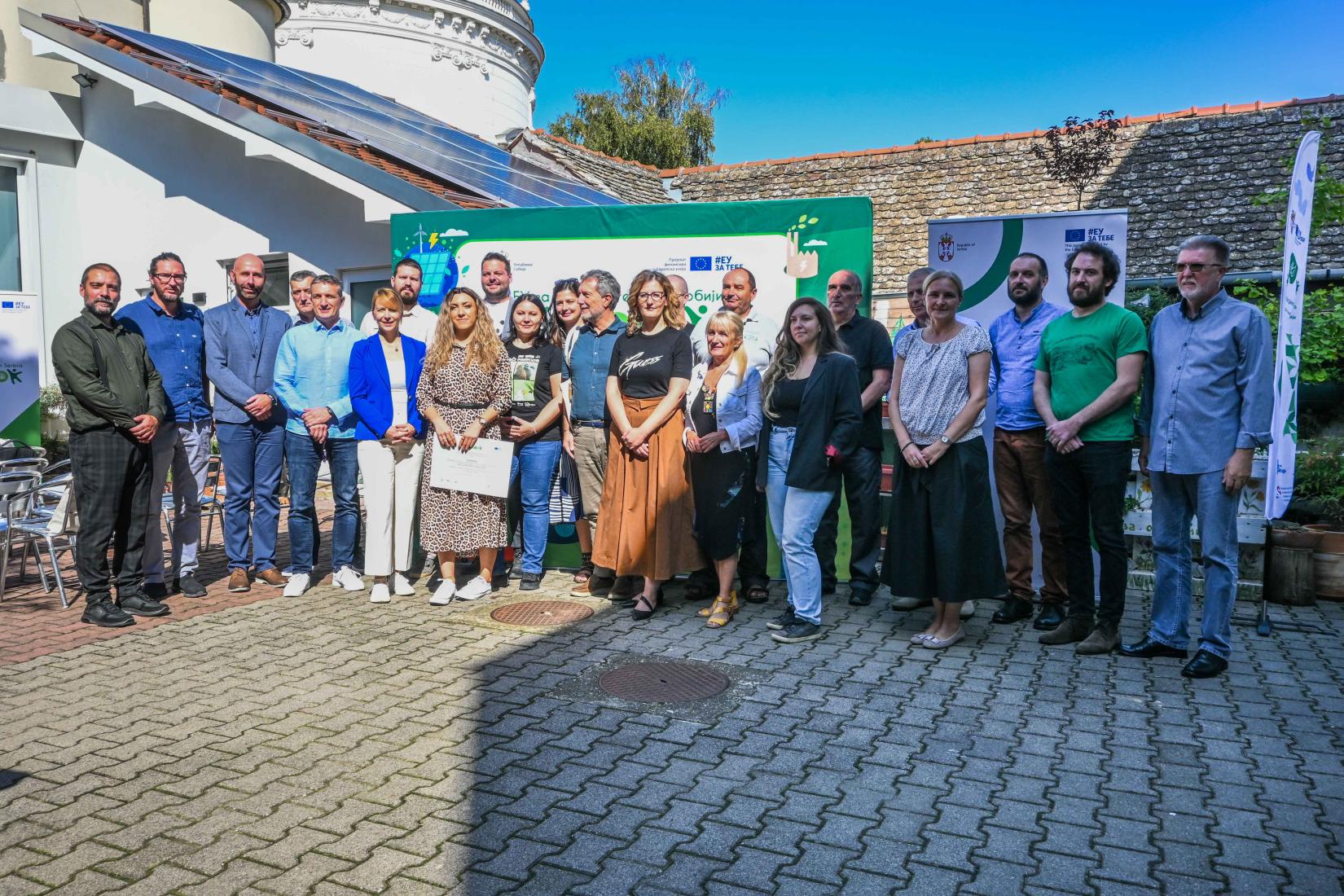
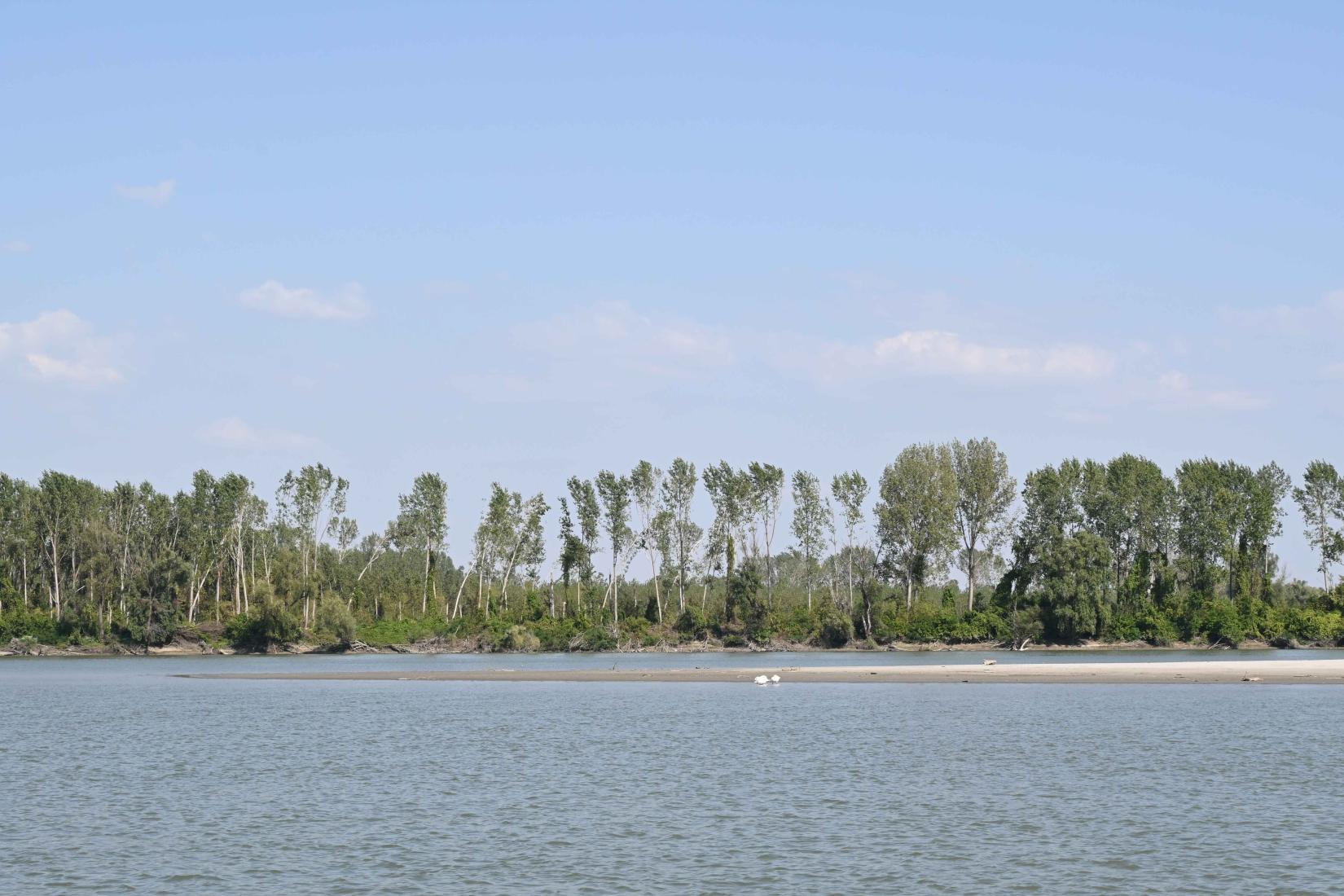
“Protection of biodiversity has become a European priority, and now we are also supporting Serbia to make improvements in biodiversity one of its priorities. Institutions and local self-governments need to work together with civil society and the private sector so as to preserve rare and endangered species and utilise natural resources in a sustainable way. The EU supports civil society and citizens in their efforts to renew and protect nature and biodiversity, within the initiative for implementation of the Green Agenda in Serbia,” said Head of Cooperation of the EU Delegation in Serbia Nicola Bertolini.
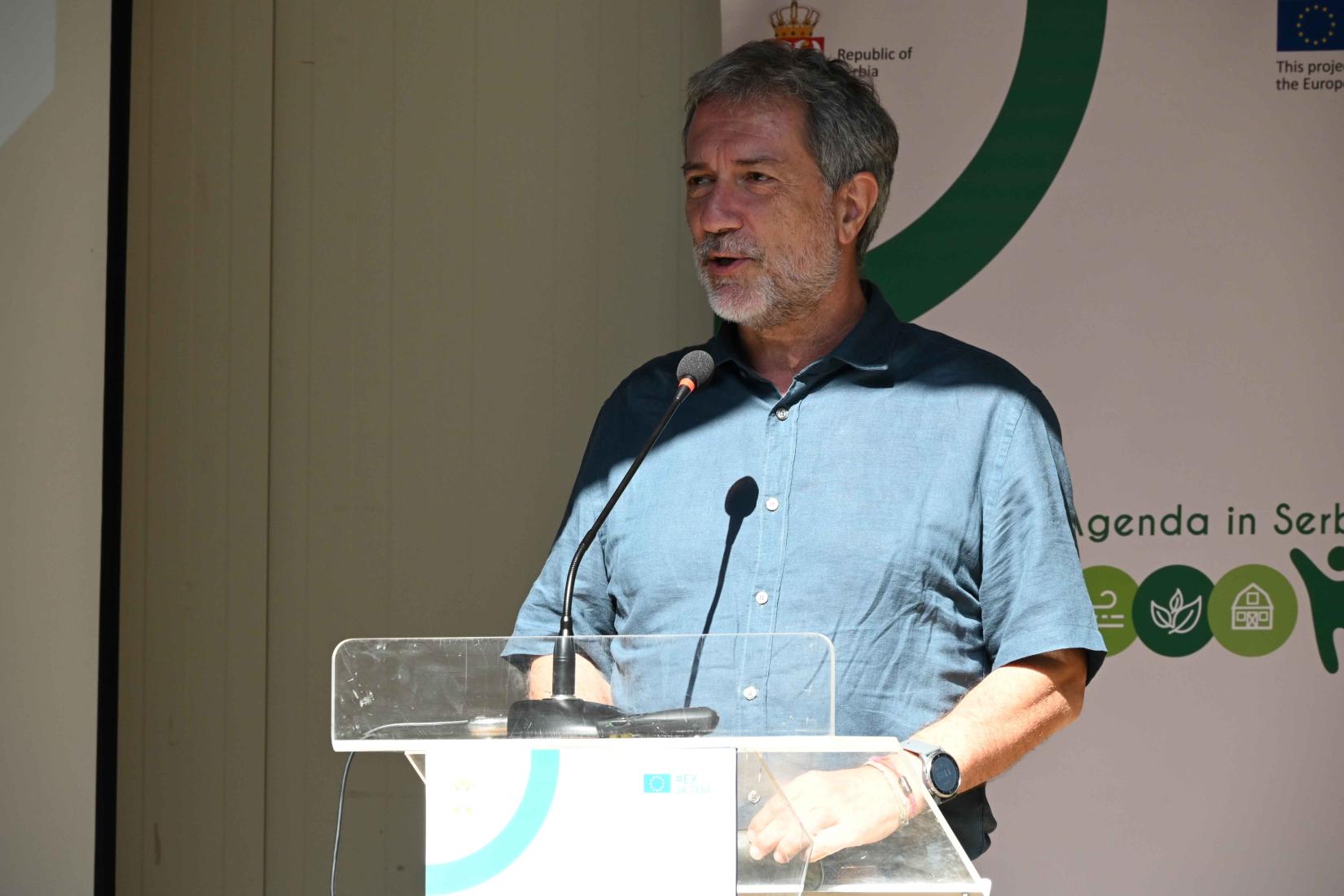
The solutions selected via a public call would contribute to the improved living conditions of different animal species – from fish and birds, to bears and wolves – as well as to the education of the population living in the immediate vicinity of the protected areas concerning the importance of preservation of nature.
The State Secretary in the Ministry of Environmental Protection Ivana Hadži Stošić said that preservation of biodiversity was crucial for the future.
“We all need to take on responsibility for the preservation of our natural heritage, since only together, we can protect our natural wealth. I, therefore, wish to thank all the civil society organisations for the ideas that bring different kinds of support to the managers of the protected areas to help them solve the challenges of preserving biodiversity. Our cooperation creates a synergy that is crucial for the success of preserving the biodiversity in Serbia. Through partnership and joint efforts, we can secure that the protected areas remain vital and our rich biological diversity be preserved for future generations,” said Hadži Stošić.
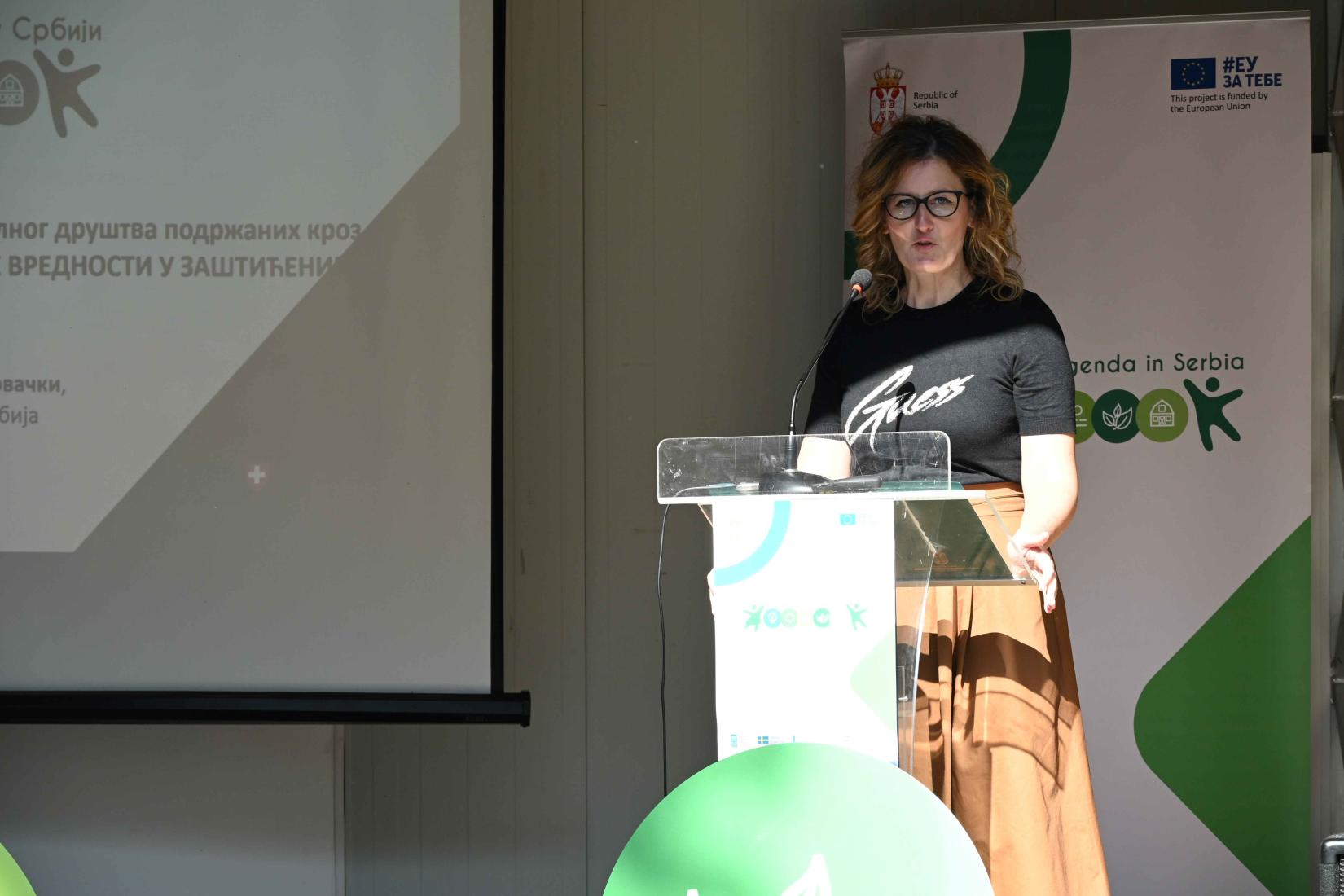
The presented solutions offer a series of practical measures for the preservation of the endangered bird species (owls, griffon vultures, bee-eaters) and their natural habitats, by for example, installing artificial nests and structures for rehabilitation of injured animals. Furthermore, the organisations would deal with the revitalisation of steppe habitats, by improving water management in swamp habitats and decreasing the risk of fires in the protected areas. All these activities will be realised by the end of the year.
“These solutions are highly important in improving the country’s resilience to climate changes, as well as for sustainable economic development. Preservation of the protected natural habitats and the numerous species living in them, helps us have purer air and water, contributes to the soil’s higher fertility, as well as to the absorption of the greenhouse gases from the atmosphere,” highlighted Deputy Resident Representative of UNDP in Serbia Bojana Balon.
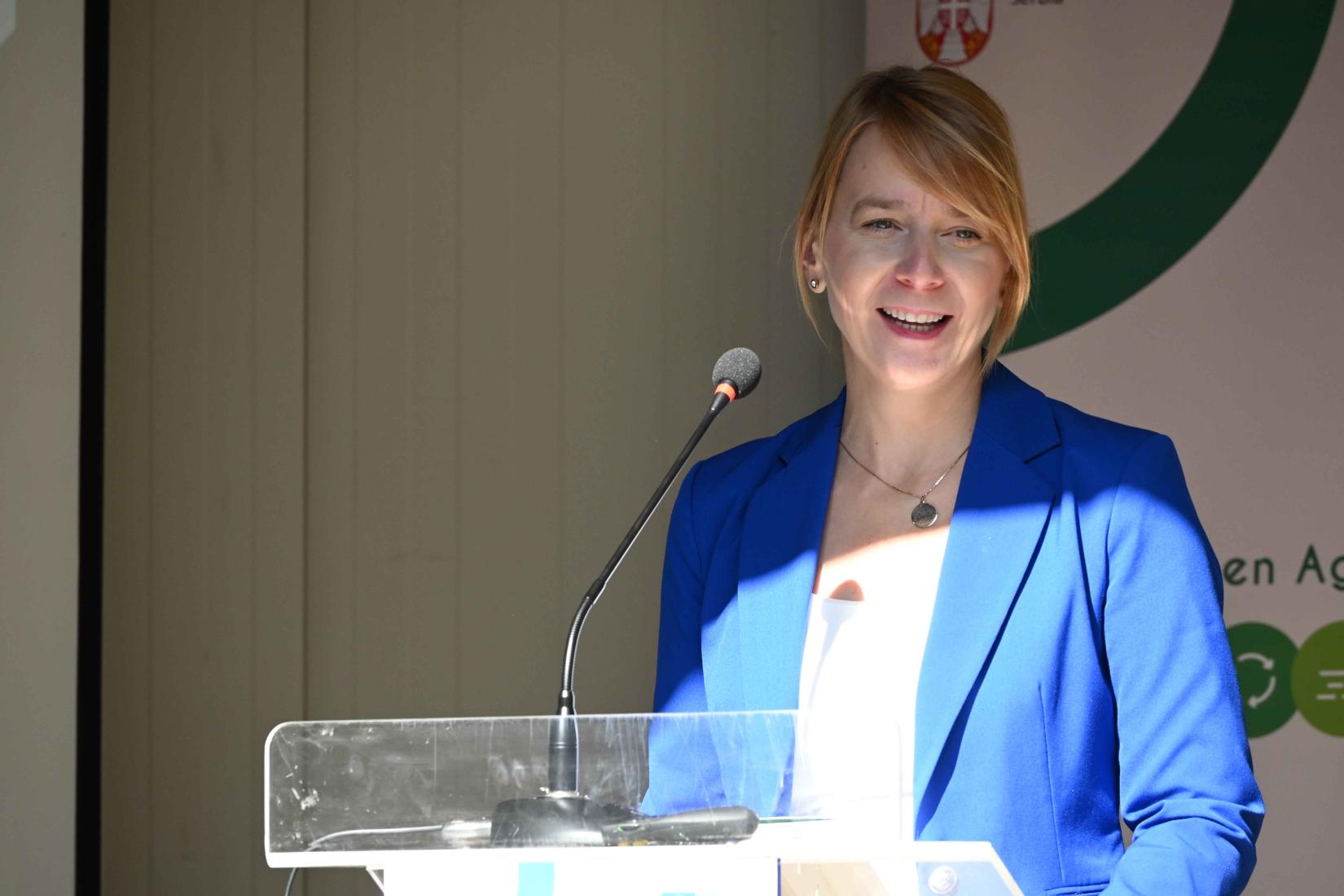
The participants of the event made a tour of the Karlovac Dunavac, a part of the Special Natural Reserve of “Kovilj-Petrovaradin Marshes”. The tour was organised by the Vojvodina Environmental Movement whose solution for landscaping and development of this protected area is among the awarded.
The “EU for Green Agenda in Serbia” project is implemented by the United Nations Development Programme with technical and financial support from the European Union, in partnership with the Ministry of Environmental Protection, and in cooperation with the Embassy of Sweden and the European Investment Bank (EIB), where additional funding has been provided by the governments of Sweden, Switzerland, and Serbia.



